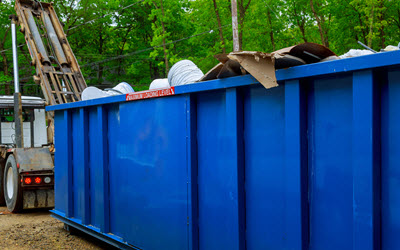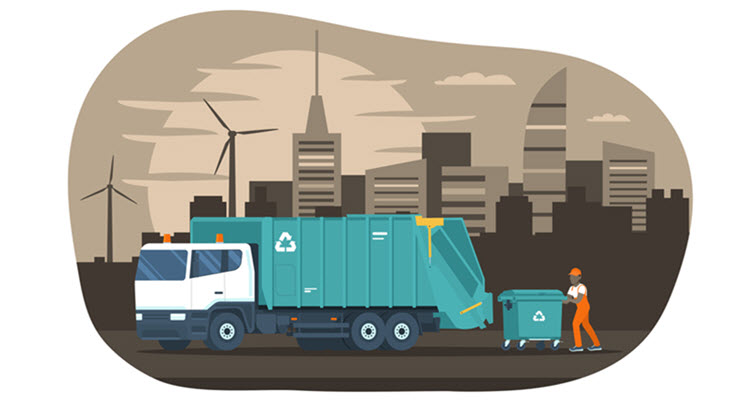Proper waste disposal is crucial for maintaining a clean and healthy environment. With the increasing population and industrialization, waste management has become a pressing concern. Fortunately, there are various versatile waste disposal techniques available that individuals and communities can adopt to minimize their impact on the environment.
Sustainable Waste Management
- Recycling: Recycling is one of the most effective waste disposal techniques. By separating recyclable materials such as paper, plastic, glass, and metal from other waste, they can be processed and used to create new products. Recycling not only reduces the amount of waste sent to landfills but also conserves natural resources and energy. It is important to educate ourselves about local recycling programs and guidelines to ensure we are recycling properly.
- Composting: Composting is a natural & eco-friendly way to dispose of organic waste such as food scraps, yard trimmings, and leaves. Composting involves the decomposition of organic materials, turning them into nutrient-rich soil called compost. This compost can be used to fertilize gardens, lawns, and potted plants, reducing the need for chemical fertilizers. Composting helps divert organic waste from landfills, where it would generate harmful greenhouse gasses.
- Waste-to-Energy Conversion: Waste-to-energy (WtE) conversion is a technique that involves converting waste into usable forms of energy. Technologies such as incineration, gasification, and anaerobic digestion can transform non-recyclable waste materials into electricity, heat, or biofuels. These energy sources can then be used to power homes, industries, and vehicles. WtE conversion not only reduces the volume of waste sent to landfills but also generates renewable energy, contributing to a more sustainable future.
- Waste Segregation: Proper waste segregation is an essential practice that helps streamline waste management processes. By separating waste at the source into different categories like recyclables, organic waste, hazardous waste, and general waste, it becomes easier to handle and dispose of them properly. Waste segregation enables effective recycling and prevents contamination of recyclable materials, ensuring their suitability for reuse.
- Landfill Management: Although landfilling is considered the least desirable waste disposal method, proper landfill management techniques can mitigate its negative environmental impact. Landfills should be designed and managed to minimize the release of pollutants into the soil and water. Techniques such as lining the landfill with impermeable barriers, capturing and treating leachate (liquid that drains from a landfill), and collecting and utilizing landfill gas can help reduce the environmental hazards associated with landfills.
- Waste Reduction: The best way to manage waste is to produce less of it in the first place. Waste reduction techniques aim to minimize waste generation through conscious consumption and responsible practices. This can be achieved by adopting practices such as purchasing products with minimal packaging, reusing items instead of disposing of them, and embracing a minimalist lifestyle. Waste reduction not only conserves resources but also reduces the strain on waste management systems.
- E-waste Management: Electronic waste, or e-waste, poses a significant environmental threat due to the presence of toxic substances. To effectively manage e-waste, it is important to recycle electronic devices properly. Many electronics manufacturers and recycling centers offer e-waste collection and recycling programs. By participating in these initiatives, we can ensure that electronic devices are disposed of in an environmentally responsible manner, preventing hazardous materials from entering landfills or being illegally exported.
- Public Awareness and Education: Creating awareness and educating the public about waste disposal techniques is vital for their successful implementation. Governments, organizations, and communities should actively engage in public outreach campaigns to promote responsible waste management practices. This can include distributing educational materials, organizing workshops and seminars, and utilizing social media platforms to disseminate information. Increased awareness can lead to behavioral changes and encourage individuals to adopt more sustainable waste disposal techniques.
Reduce The Environmental Impact Of Waste
There are several versatile waste disposal techniques that individuals and communities can adopt to contribute to sustainable waste management. Recycling, composting, waste-to-energy conversion, waste segregation, landfill management, waste reduction, e-waste management, and public awareness are all important aspects of a comprehensive waste management strategy. By implementing these techniques, we can reduce the environmental impact of waste and move towards a cleaner and healthier planet for future generations.
Rent A Commercial Trash Container From BG’s Big Box Service Today
Looking for a practical way to dispose of commercial  waste? Look no further than BG’s Big Box Service. Our commercial trash containers are designed to help streamline your waste management process, making it easier and safer for your business to dispose of unwanted materials.
waste? Look no further than BG’s Big Box Service. Our commercial trash containers are designed to help streamline your waste management process, making it easier and safer for your business to dispose of unwanted materials.
By renting one of our containers, you’ll be taking a proactive step towards protecting your property and keeping it running smoothly. Plus, with our flexible rental options and high-quality equipment, you can rest assured that you’re getting the best possible service for your money. So why wait? Contact BG’s Big Box Service located in Sun Valley, CA today and start taking control of your commercial waste management today.



